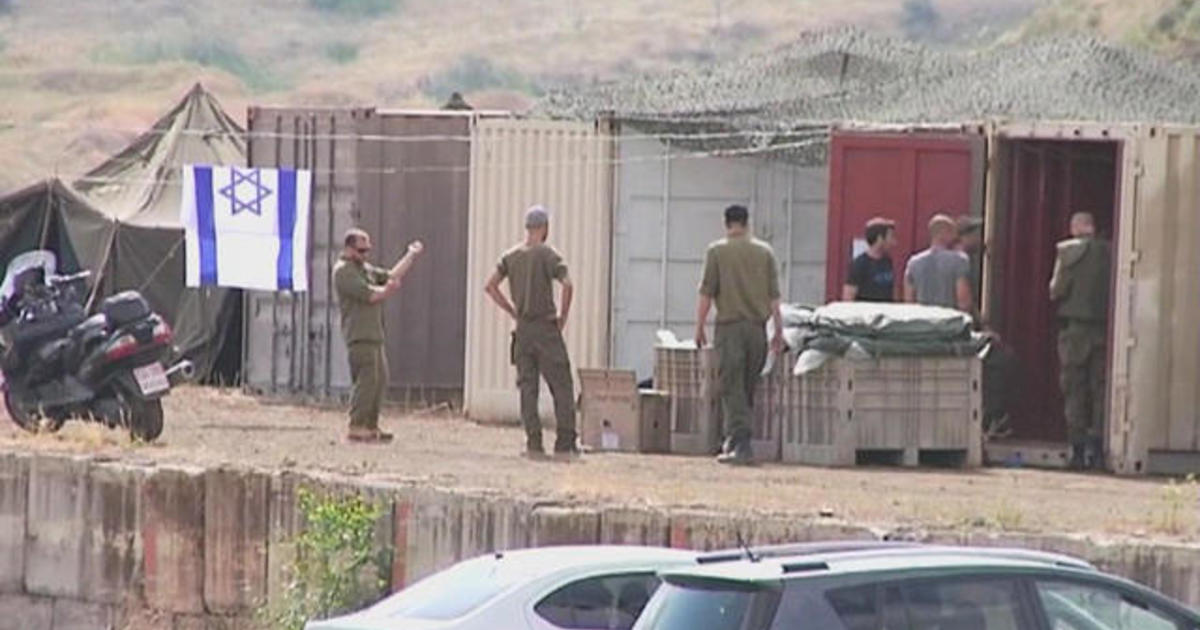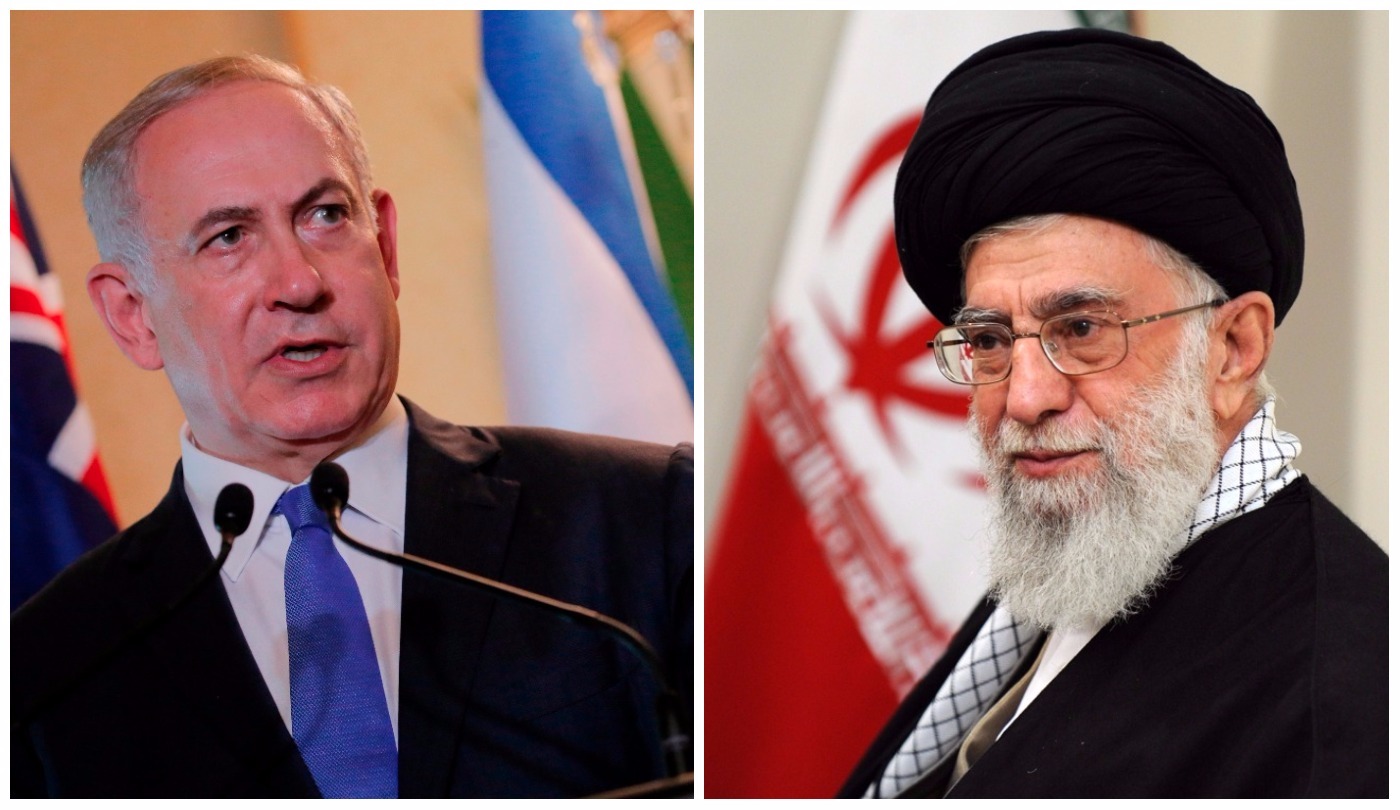Historical Context and Relationship

The relationship between Iran and Israel has been marked by deep mistrust and animosity for decades. This complex dynamic is rooted in a confluence of historical, religious, and ideological factors, shaping a relationship characterized by conflict and suspicion.
Key Events and Turning Points, Iranian israeli
The historical relationship between Iran and Israel is intertwined with the broader context of the Middle East, characterized by political instability and competing claims over territory and resources.
- The 1948 Arab-Israeli War marked a turning point, with Iran siding with the Arab states against the newly established state of Israel. This event solidified a sense of animosity and fueled a perception of Israel as an existential threat to Iran’s regional security.
- The 1979 Islamic Revolution in Iran led to the establishment of an Islamic Republic, further straining relations with Israel. The new regime, led by Ayatollah Khomeini, openly declared its intention to destroy Israel, fueling tensions and contributing to a heightened sense of regional instability.
- The Iran-Iraq War (1980-1988) saw both Israel and Iran supporting opposing sides, further escalating the conflict and deepening the mistrust between the two nations.
- The rise of Hezbollah, a Lebanese Shia militia backed by Iran, has significantly impacted the relationship between Iran and Israel. Hezbollah’s military capabilities and its involvement in numerous conflicts with Israel have created a complex and volatile dynamic in the region.
The Role of Religion and Ideology
Religion and ideology play a crucial role in shaping the relationship between Iran and Israel.
- Iran’s Shia Islamic ideology views Israel as an illegitimate entity, created through Western intervention and a threat to the Islamic world. This perception is rooted in the belief that Jerusalem is a sacred city for Muslims, and its control by Israel is seen as a violation of Islamic principles.
- Israel, on the other hand, perceives Iran as a major threat to its existence, citing Iran’s support for terrorist groups and its pursuit of nuclear weapons. This perception is further fueled by Iran’s rhetoric calling for Israel’s destruction.
Political Systems and Ideologies
The political systems and ideologies of Iran and Israel are fundamentally different, contributing to the ongoing tensions between the two nations.
- Iran is an Islamic Republic, governed by a system of religious law and a supreme leader who holds significant political power. The country’s foreign policy is often driven by a desire to promote Islamic values and resist Western influence.
- Israel is a parliamentary democracy, with a system of government based on democratic principles and a multi-party political system. The country’s foreign policy is heavily influenced by security concerns and a desire to maintain its national security.
Current Political Landscape: Iranian Israeli

The current political landscape between Iran and Israel is characterized by deep mistrust and animosity, fueled by a complex web of historical grievances, ideological differences, and regional power struggles. The two nations have been locked in a protracted conflict for decades, with each side viewing the other as an existential threat.
Points of Contention
The major points of contention between Iran and Israel are numerous and multifaceted, encompassing a range of issues that have fueled tensions for decades.
- Nuclear Program: Israel considers Iran’s nuclear program a grave threat, fearing it could lead to the development of nuclear weapons. This concern has been a major point of contention, leading to international sanctions against Iran and the possibility of military action by Israel.
- Regional Influence: Both countries are vying for influence in the Middle East, with Iran seeking to expand its power through its support for various militant groups and Israel seeking to maintain its dominance in the region. This competition for regional power has led to proxy conflicts and heightened tensions, particularly in Lebanon, Syria, and Gaza.
- Hezbollah: Israel views Hezbollah, a Lebanese Shiite militant group backed by Iran, as a major threat. Hezbollah’s arsenal of missiles, its presence along the Israeli border, and its close ties to Iran have been a source of constant tension and conflict.
- Palestinian Issue: While both Iran and Israel support a two-state solution in theory, their positions on the Palestinian issue differ significantly. Iran supports the Palestinian cause and has condemned Israel’s actions in the West Bank and Gaza. Israel, on the other hand, views Iran’s support for Palestinian militant groups as a destabilizing factor in the region.
- Ideological Differences: Iran and Israel are fundamentally different in their ideologies. Iran is a theocratic republic with a strong emphasis on Islamic principles, while Israel is a democracy with a Jewish majority. These ideological differences have contributed to the deep mistrust and animosity between the two nations.
Role of International Actors and Regional Powers
International actors and regional powers play a significant role in the Iran-Israel conflict, often attempting to mediate between the two nations or to influence their actions.
- United States: The United States is a key player in the conflict, with a long-standing alliance with Israel and a complex relationship with Iran. The US has imposed sanctions on Iran, supported Israel’s security, and attempted to negotiate a nuclear deal with Iran.
- European Union: The European Union has been involved in efforts to resolve the Iran nuclear issue and has also sought to promote peace in the Middle East. However, its role in the conflict has been limited due to its internal divisions and its dependence on US support for security in the region.
- Russia: Russia has developed closer ties with Iran in recent years, supplying it with weapons and providing support for its nuclear program. Russia has also sought to play a role in mediating between Iran and Israel, but its interests are often aligned with Iran’s.
- Saudi Arabia: Saudi Arabia is a major regional power that is deeply suspicious of Iran’s growing influence in the Middle East. Saudi Arabia has been a vocal critic of Iran and has supported Israel’s efforts to counter Iran’s influence.
- Arab States: Some Arab states, particularly in the Gulf region, have been drawn closer to Israel in recent years due to their shared concerns about Iran’s growing influence. This shift in alliances has created new dynamics in the region, potentially impacting the Iran-Israel conflict.
Potential for Future Conflict or Cooperation
The future of the Iran-Israel conflict is uncertain, with the potential for both conflict and cooperation.
- Potential for Conflict: The possibility of conflict between Iran and Israel remains a significant concern, particularly given the ongoing tensions over Iran’s nuclear program, the Israeli-Palestinian conflict, and the regional power struggle. A military confrontation between the two nations could have devastating consequences for the entire region.
- Potential for Cooperation: Despite the deep animosity between them, there is also a possibility for cooperation between Iran and Israel. Some experts argue that shared interests in combating terrorism, promoting economic development, and resolving the Israeli-Palestinian conflict could provide a basis for dialogue and cooperation.
Impact on the Region and Beyond

The Iran-Israel conflict has had a profound and enduring impact on the stability of the Middle East, influencing regional dynamics and international relations. The conflict has fueled tensions, proxy wars, and arms races, contributing to a volatile and unpredictable security environment.
Impact on Middle East Stability
The Iran-Israel conflict has significantly impacted the stability of the Middle East, creating a complex web of alliances and rivalries. The conflict has been a major factor in the rise of sectarian tensions and violence in the region, with Iran and Israel supporting opposing sides in conflicts such as the Syrian Civil War and the Yemeni Civil War. The conflict has also contributed to the proliferation of weapons in the region, making it one of the most heavily armed areas in the world.
Implications for Global Security and International Relations
The Iran-Israel conflict has implications for global security and international relations. The conflict has raised concerns about the potential for a wider regional war, especially given the involvement of external powers like the United States and Russia. The conflict has also complicated efforts to address other regional challenges, such as the fight against terrorism and the promotion of democracy.
Key Stakeholders and Their Interests
The Iran-Israel conflict involves a complex array of stakeholders, each with their own interests and objectives. The following table summarizes the key stakeholders and their interests:
| Stakeholder | Interests |
|---|---|
| Iran | Regional dominance, nuclear program, support for allies, countering Israel’s influence |
| Israel | Security, maintaining its nuclear monopoly, preventing Iran from developing nuclear weapons, preserving its regional dominance |
| United States | Maintaining stability in the region, preventing the spread of nuclear weapons, promoting peace between Iran and Israel |
| Russia | Maintaining influence in the region, securing its strategic interests, supporting Iran’s government |
| Saudi Arabia | Countering Iran’s influence, maintaining regional security, preventing the development of nuclear weapons in the region |
| European Union | Promoting peace and stability in the region, preventing nuclear proliferation, strengthening international cooperation |
Iranian israeli – The complex relationship between Iran and Israel is often in the news, with tensions rising and falling. It’s a reminder that even in the midst of political turmoil, there are individuals like Gwen Walz , the First Lady of Minnesota, who are working to build bridges and foster understanding between people of different backgrounds.
This focus on human connection can help to create a more peaceful world, even in the face of ongoing challenges like the Iranian-Israeli conflict.
The relationship between Iran and Israel is complex and often tense, marked by historical disagreements and differing views on regional security. However, in the realm of sports, there are instances of cooperation and even friendship, like the case of Alex Highsmith, a standout NFL linebacker , who has spoken about the importance of understanding and building bridges across cultural divides.
Perhaps, through such examples, we can learn to appreciate the shared humanity that transcends political differences.
